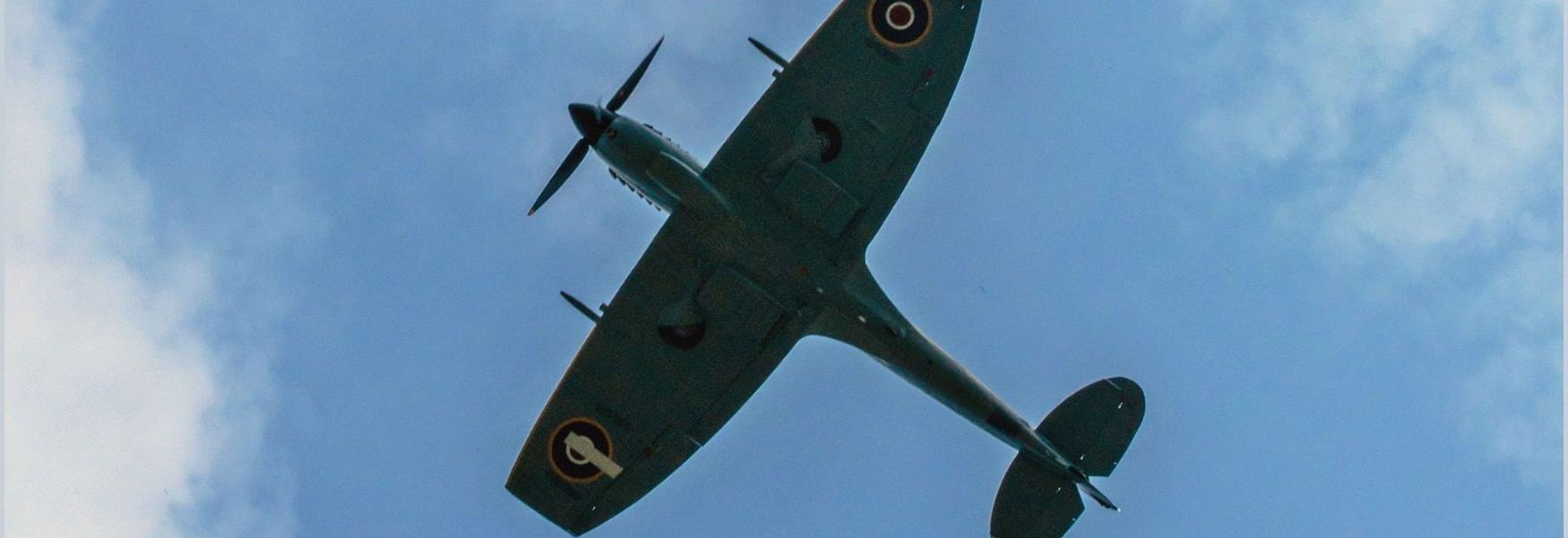To build your own Itinerary, click  to add an item to your Itinerary basket.
to add an item to your Itinerary basket.
Already saved an Itinerary?



You are here: UK History > Britain at War > WWII > Notable people of WWII
There are some names that automatically spring to mind when discussing WWII, like Winston Churchill or Neville Chamberlain, but they aren't the only notable people associated with the conflict.
During the course of the War, Britain had three Prime Ministers. At the start of the war, the country was being led by Neville Chamberlain who initially sought a policy of appeasement with the Nazis in the hope that another war could be avoided. After the invasion of Poland, he was forced to take Britain into war and after a series of humiliating defeats, he was replaced by Winston Churchill. Churchill was replaced by Clement Atlee in 1945. He was the leader of the Labour Party and ruled until 1951, under his government, he enlarged and improved social services and the public sector in Post War Britain. He also oversaw the creation of the NHS and presided over the decolonisation of India and the creation of the state of Israel.
Winston Churchill
Elected Prime Minister of Great Britain in May 1940, Churchill has become synonymous with WWII and took an active direction in the war effort. His speeches helped to bolster morale during the difficult years of the Blitz.
Adolf Hitler
The Nazi Dictator took charge in 1933 and remained so until 1945. During the 1930s, he had a policy of rearmament and regaining territory lost during WWI. His initial success encouraged him to invade Russia which ultimately would over stretch his forces. His regime pursued the extermination of the Jews, the disabled, political opponents, LGBTQA+ individuals and other non-Aryan minorities in concentration camps across Europe.
Franklin D Roosevelt
As president of the USA from 1932 until 1945, Roosevelt was sympathetic to the allied cause and offered generous loans to Britain. After Japanese forces bombed Pearl Harbour, he led the US in declaring war on both Japan and Germany. The US provided the majority of the troops in the D Day landings.
Joseph Stalin
The leader of the Soviet Union was initially an ally of Hitler’s and was blindsided when Nazi forces marched into Russia. He was a figurehead in rallying Russian resistance to the Germans and it was Russian troops that liberated several occupied areas.
Harry Truman
After Roosevelt died in office, the presidency was taken by Vice President Harry Truman, who oversaw the end of the war in Europe and approved the atomic bomb missions in Japan. He helped fund the United Nations at the end of the year.
Benito Mussolini
Mussolini was the head of the fascist government in Italy and sought to create a new Roman Empire after allying with Germany. He was executed by his own people.
Charles de Gaulle
General de Gaulle led the French resistance in occupied France and was recognised as the country’s leader by the British who helped return him to Paris in 1944 as part of France’s liberation.
Anne Frank
A Jewish teenager who was in hiding in Holland during the war who kept a diary of her experiences. Her family were betrayed and deported to concentration camps. Anne died in Bergen Belson where there is a grave marker for her. Her possessions are still on display at Auschwitz.
J Robert Oppenheimer
Oppenheimer was an American physicist who worked on the atomic bomb under the Manhatten Project. After the atomic bombs were dropped on Japan, he campaigned against his own creation.
Oskar Schindler
A German national who joined the Nazi party and continued to aid in production with his factory in Poland. Unbeknownst to other party members, he used his money and connections to protect over 1000 Jews who he employed in his factory.
Alan Turing
Often credited for ending the war years early with his work on code breaking, he was a mathematician and computer scientist who worked with the government at their code-breaking organisation. He focused on the Egnima ciphers used by Nazi Germany and managed to crack the code, which gave the Allies an advantage.
Odette Sansom
A British spy who parachuted into France and worked for the French underground. She was captured by the Gestapo and was incarcerated at Ravensbruck concentration camp. She was later awarded the George Cross.
Ian Fleming
Yes, the author of James Bond was a British spy during the second world war. He started out working as an assistant for the Director of Naval Intelligence before being recruited as a spy. He was put un charge of Operation Goldeneye from 1941-42 where he was to launch sabotage operations against the Nazis from Gibraltar.
Margery Booth
Also known as Margery Kallus, she was an opera singer who after marrying a German and moving to the country became a spy during the war. She even met Adolf Hitler, who she sang for while carrying documents from a British officer. Hitler was so impressed he even sent her red roses wrapped in a swastika flag. In 1944, she was arrested by the Gestapo and tortured, but didn’t reveal her sources, she was eventually liberated by the US.
© Visit Heritage 2025. All Rights Reserved

.png)


